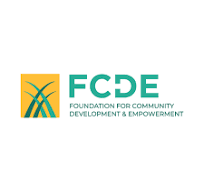Conservation and Demand Agency
We mobilize communities to improve their capacity to protect, restore, and improve the environment. CODEA also works to empower community groups, households, and individuals to meet their socio-economic needs sustain-ably; contribute to improving health conditions especially for children, youth, and women, as well as promoting justice and gender equality.
Read moreA self-sustaining society
CODEA encourages community members to collaborate toward a common goal of self sufficiency by showcasing real-life examples of sustainable development in action.

25
- 8:30 AM - 4:00 PM
- Maliba Sub-county-Kasese District
Water Harvesting for Climate Resilience
Rainwater harvesting is more than just collecting water — it’s a lifeline. By reducing rooftop runoff, these tanks help prevent soil erosion, protect homesteads, and preserve the environment. At the same time, they improve household hygiene, ensuring families have reliable access to clean water for domestic use, sanitation, and small-scale food production. On September 25th, 2025, CODEA Uganda celebrated a remarkable milestone, the distribution of 25 rainwater harvesting tanks to water-stressed and disaster-affected communities in Bikone and Isule Parishes of Maliba sub-county, Kasese district. This intervention, implemented under the Strengthening Climate Resilience and Livelihoods (SCREL) Project funded by the confluence Institute, is part of a broader mission to build climate-smart communities that thrive even under pressure. Join the Movement; Every water tank installed represents 5 families protected, gardens nourished, and a future restored. Together, we can scale up access to clean water, strengthen community resilience, and safeguard both livelihoods and ecosystems across Kasese and beyond.

12
- 8:00 AM - 5:40 PM
- Kasese District
BOD and Top Management Monitoring Visit
On 12th November, the Board of Directors and Top Management Team conducted a monitoring mission across selected sub-counties in Kasese, including Maliba, Maliba Town Council, Ibanda–Kyanya Town Council, Kisinga, Muhokya, and Kahokya. The team reviewed running interventions including the Strengthening Climate Resilience and Livelihoods (SCREL) Project and Livelihoods-Rwenzori Yethu Project (RYP), assessed progress, and offered strategic guidance. Through engagements with staff, leaders, and beneficiaries, they observed key results and challenges. The visit reinforced the organization’s commitment to transparency and accountability, with recommendations set to improve planning and strengthen project impact.

14
- 6:30 AM - 5:30 PM
- Kasese Municipality
Omusinga Birthday Run
CODEA staff and management, led by Director Muhindo Jonan Kom, joined Obusinga Bwa Rwenzururu (a cultural institution ) loyalists in celebrating the 59th coronation anniversary. The event began with a fundraising marathon supporting the establishment of a cultural institution radio station and a one-stop cultural village museum


-
Latest Advert
Tree Nursery Officer Vacancy
The Conservation and Demand Agency (CODEA) is recruiting a skilled and motivated Tree Nursery Officer to support its tree-planting project in the Rwenzori Region. The project aims to boost coffee and cocoa productivity, restore degraded land, and strengthen climate resilience among smallholder households. The ideal candidate must be a Ugandan citizen with extensive experience in tree nursery establishment, operation, and management, including seedling propagation, agroforestry, and community training. A Certificate in Forestry or related field is the minimum requirement, though higher qualifications are welcome. Applicants should also have knowledge of environmental and safeguarding standards and be ready to work extensively in the field. Duty Station: Kasese District Contract: 12 months (January–December 2026) Salary: Competitive Deadline: open till position is filled
-
Reach and Impact
CODEA ANNUAL REPORT 2024/2025
In the fiscal year 2024/25, CODEA advanced sustainable development and environmental stewardship across vulnerable communities. Through targeted health interventions, the organization reached 502 individuals, improving access to essential health services and promoting well-being. In environmental protection and natural resource management, CODEA engaged 6,000 people while working directly with over 5,000 farmers, building capacities for climate-smart agriculture and sustainable land use. CODEA also directly improved the livelihoods of 1,620 individuals, representing households supported through initiatives that enhance income, food security, and economic empowerment. To guide its future efforts, the organization has developed a robust five-year strategic plan focusing on conservation, community development, inclusion, and climate resilience. These interventions contribute to several Sustainable Development Goals (SDGs), including: SDG 1: No Poverty SDG 2: Zero Hunger SDG 3: Good Health and Well-being SDG 5: Gender Equality SDG 8: Decent Work and Economic Growth SDG 10: Reduced Inequalities SDG 12: Responsible Consumption and Production SDG 13: Climate Action SDG 15: Life on Land
-
Reach
CODEA ANNUAL REPORT 2023/2024
The Conservation and Demand Agency (CODEA) continues to improve the lives of vulnerable communities through sustainable interventions. In 2023/24, CODEA advanced water access, environmental conservation, capacity building, agroforestry, livelihood support, and disaster relief. WASH programs benefited over 3,000 internally displaced persons, constructed a water tap at Buhunga Primary School intended to serve 700 surrounding households and four rainwater harvesting tanks . Climate and land management initiatives reached 1,559 farmers across 565 hectares, complemented by more than 200,000 tree seedlings prepared for planting and a community access bridge constructed at in Kasese District. CODEA launched the Livelihoods Rwenzori Yethu projects, targeting to improve the livelihoods of more than 11,000 households in Kasese and Ntoroko District. Disaster relief aid was extended to 616 households in internally displaced Camps across the district and improved route access for over 100,000 community members. Through partnerships, staff expansion, and follow-ups with beneficiaries, CODEA ensures lasting community impact and sustainable development.












